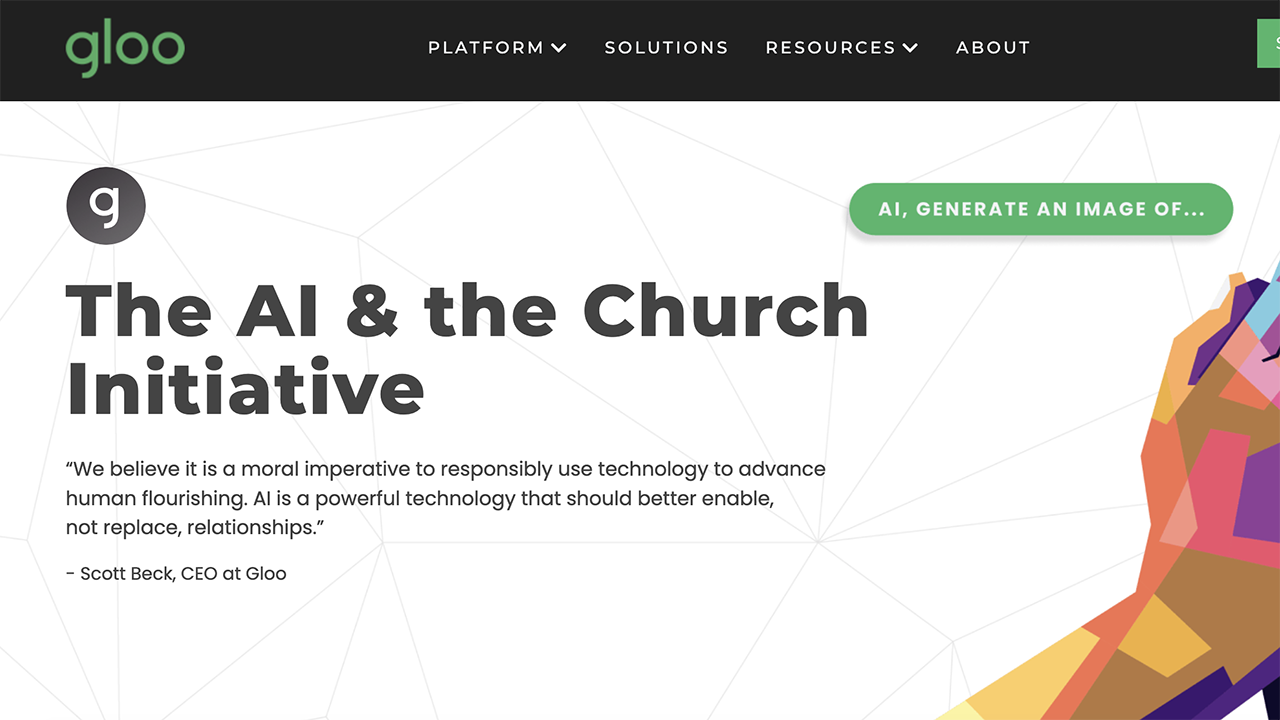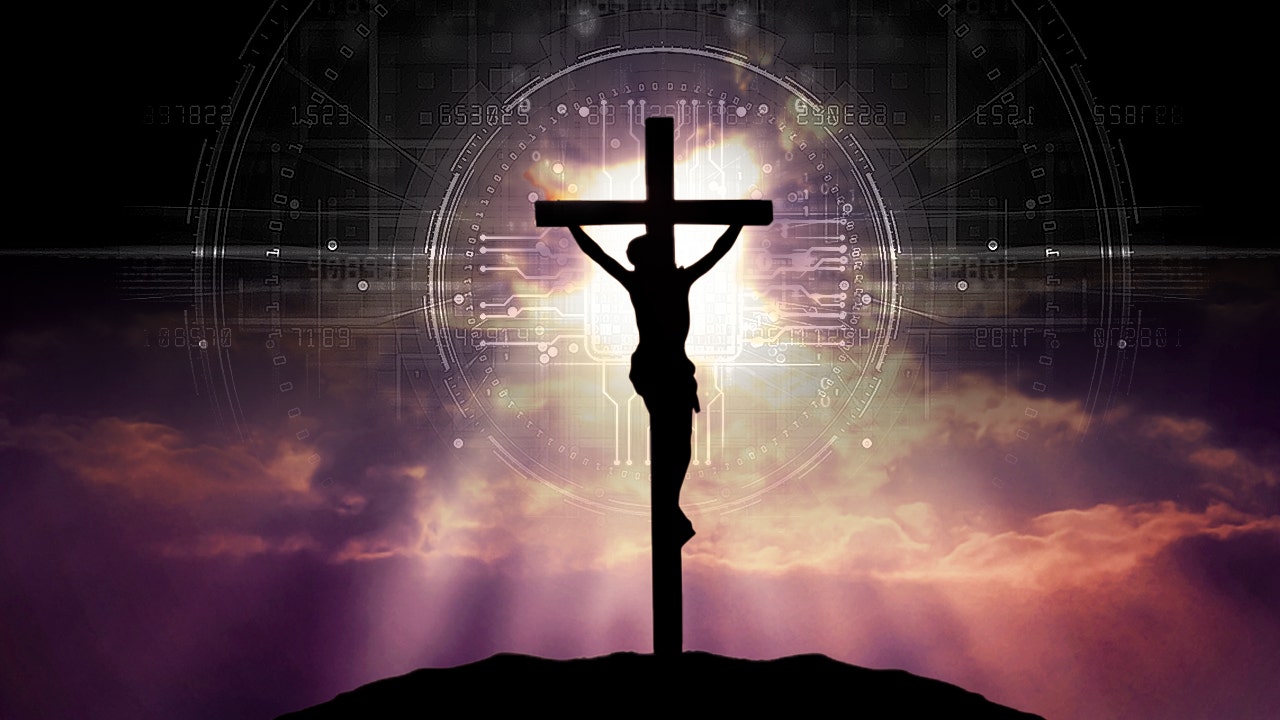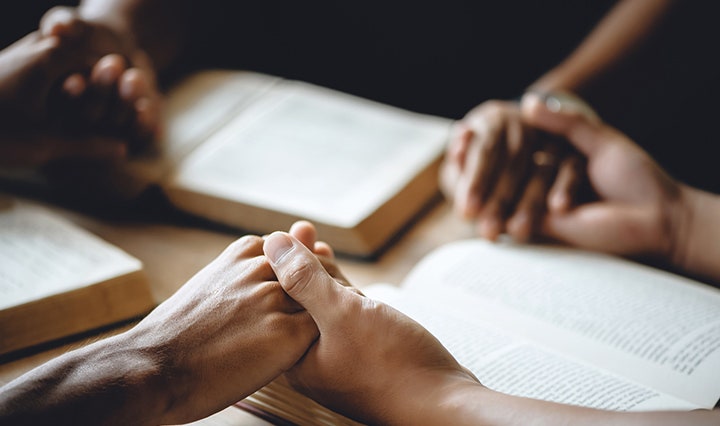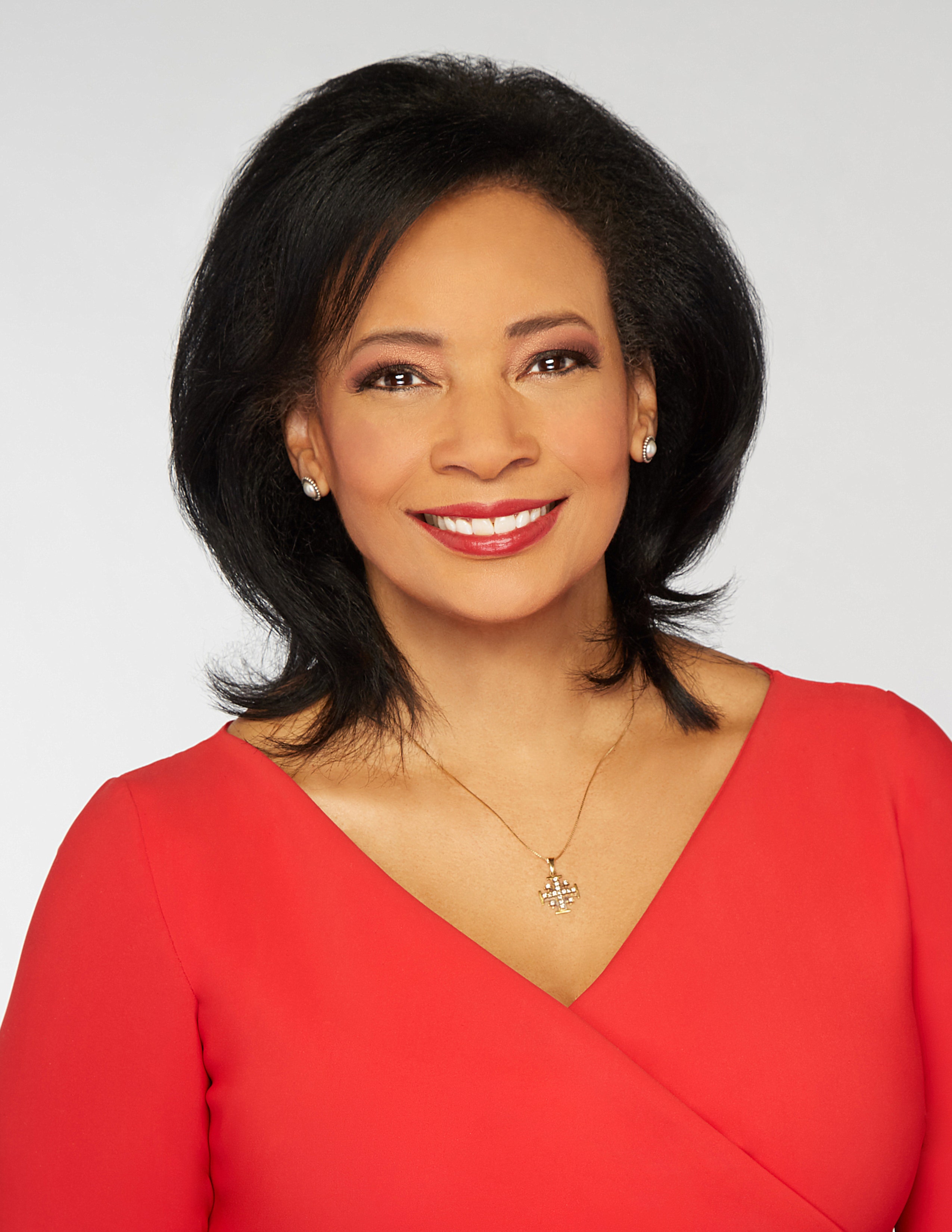'AI and the Church' tech initiative aims to bring God's power to those in need
Scott Beck, CEO of Gloo, believes that AI, used properly, can benefit 'human flourishing'
Voters address concerns surrounding artificial intelligence
A bipartisan panel of voters weighed in on the future of artificial intelligence and growing concerns surrounding the potential dangers of the emerging technology.
This story discusses suicide. If you or someone you know is having thoughts of suicide, please contact the Suicide & Crisis Lifeline at 988 or 1-800-273-TALK (8255).
Many people believe there is much to fear with artificial intelligence — that there are so many unknowns.
It's one reason the Senate recently held hearings with Intelligence and Defense officials to explore how AI could affect the country's safety.
But Scott Beck of Boulder, Colorado, the founder and CEO of Gloo, said he believes that AI is simply a tool that when used properly has the potential to benefit human flourishing — as God intended.
WHAT IS ARTIFICIAL INTELLIGENCE?
Beck said, "We don't believe that God is surprised by AI. Don't think that He was surprised by the printing press. I don't think He was surprised by television. Don't think He was surprised by the internet."
Gloo is a technology platform that has launched the algorithm-based "AI & the Church" initiative. As Beck explained, it's designed to release the power of God's grace and mercy, love and justice, compassion and caring.
"What I'm talking about are not only all the churches, but also all those other ministries, the campus ministries, the relationship ministries, the marriage ministries, financial, vocational recovery, behavioral health, suicide prevention, all those other ministries," he said.
For example, let's say someone is having trouble in their marriage and starts searching the web for answers. The AI algorithm could direct that person not to divorce lawyers — but to faith-based marriage counselors.
Gloo has more than 38,000 churches and congregations already signed up for access to Gloo's "AI & the Church."
That's because the Church that Jesus Christ created wants marriages strengthened and relationships between husbands and wives healed.
Also, imagine a depressed teen searches a site for advice about living or dying. Then imagine that within less than a minute, that same teen gets a phone call from a pastor of a nearby church asking to have a talk about life — and to be a listening ear.
This is what Beck said he's working to create through Gloo. It already has more than 38,000 churches signed up for access to Gloo's "AI & the Church" — with more than 100 joining each day.

The Gloo website shares information about its "AI and the Church Initiative." (Gloo)
Pastor Eric Parks, lead pastor of Forest City Church in Illinois and a member of the teaching team at Plum Creek Church in Colorado, was one of the first to sign up.
He is full of praise but noted his reservations regarding its limitations.
AI TALKS DATING, RELATIONSHIPS, MORALS — EVEN OFFERS VIDEO-GAMING TIPS
Said Parks, "I believe that God created us to thrive. If you look at what Jesus promises, life with Him — that there is a fullness in Him. And so can AI create that? No. Not according to my theology. That comes from a relationship with Christ."
However, he also said, "Can AI put tools in front of me and in people that I love that may help move us toward flourishing? Yeah."
Scott Beck of Gloo believes that AI is only as dangerous as the people who program it.
Parks said he is astounded at AI's ability to not only analyze his sermon but then create, in very little time, 10 questions for small group discussions.
"Oh gosh, yes, I could use that often," he said.
Parks also said he is particularly hopeful about AI's ability to help people who are struggling, who may have emotional issues and who could be suicidal.
He recounted with anguish, "How often have I presided over a funeral of a 22-year-old kid who, you'll make the statement, ‘If we only had known that you were struggling.’"

"What I'm talking about are not only all the churches, but also all those other ministries, the campus ministries, the relationship ministries, the marriage ministries, financial, vocational recovery, behavioral health, suicide prevention, all those other ministries," said Scott Beck of Gloo and its new "AI & the Church" initiative. (iStock)
Mental health professionals say there are clues that friends and family of a suicide victim see only in hindsight.
But Beck said that AI has the ability to pick up those very same clues — days, if not weeks, earlier.
Said Beck, "One of the things that we can do then is we immediately apply AI to listen to the message. And if the message has got the keywords such as ‘suicide’ or, you know, ‘I want to end my life,’ or those types of things, within a moment we're able to go ahead and route those people into a suicide prevention ministry. Or we may also then route those people into a relationship ministry or into a local church."
BIBLE EXHIBIT CHALLENGES BELIEF THAT FAITH AND SCIENCE HAVE NOTHING TO DO WITH EACH OTHER
Park noted, "If AI were able to identify these warning signs and create pathways for humans to connect with someone in these spaces, we know the likelihood of someone surviving a mental health crisis goes up exponentially if that person can connect with help in a certain amount of time."
But the good of AI's potential has been vastly overshadowed by AI's darker side already in progress, some people believe — one that works against faith and human flourishing.
David Curry, CEO of Global Christian Relief, based in California, warned, "The thing about artificial intelligence, though, [is that] it begins to take case studies and learn and make its own assumptions. So that's where we don't know where this is going to lead. It's algorithms on steroids."
Beck said our ultimate faith should not be in a technology — but in the God who created us and the world.
Curry said that China already has used AI's facial recognition technology to target religious minorities, especially Christians.
"They are deemed a threat to the country because they put loyalty to God above their political allegiance. So AI helps the regime target those considered socially undesirable."

The CEO of Gloo, Scott Beck, said he believes AI is a tool that when used properly has the potential to benefit human flourishing — as God intended. (Fox News)
Added Curry, "If you have a low social score, you can't get in or out of your apartment through the key code. You're not allowed online. There are any number of ways in which this artificial intelligence begins to be like a boa constrictor around the human rights of an individual simply because the computer has decided … It's been taught and then has learned further to punish religious expression."
Beck, however, said AI is only as dangerous as the people who program it, who give it the plethora of information for it to learn from.
Beck himself is a man of faith, one who also has strong business acumen.
He's been in business for 40 years.
He understands how companies can do what they do better. He grew Blockbuster Video to a national chain with more than 7,000 stores before selling it to Viacom in 1993. He's also been a part of Boston Market and Einstein Bagels, companies whose successes are owed to Beck.
He said, "Being able to be CEO or president of those companies taught us a lot about what does it mean to put infrastructures underneath industries so that they could all get the benefit of their scale?"

The vision of the "Ai and the Church" initiative is that it will help the general population — whose younger generations are pulling away from organized religion — find their way back to God. (iStock)
Now he's turning that expertise toward faith with "AI & the Church" — helping small churches gain access to information that mega churches can create on their own.
It will also help the general population — whose younger generations are pulling away from organized religion — find their way back into the welcoming arms of a God who cares and loves them. That is the vision.
The challenge, however, for AI is: Can it learn the nuances of mercy, grace or turning the other cheek?
CLICK HERE TO SIGN UP FOR OUR LIFESTYLE NEWSLETTER
These are divine qualities that even stymie humans.
How can technology be taught to love those who hate it?
CLICK HERE TO GET THE FOX NEWS APP
Beck said our ultimate faith should not be in a technology — but in the God who created us and the world.
AI is morally neutral. But humans are not.


